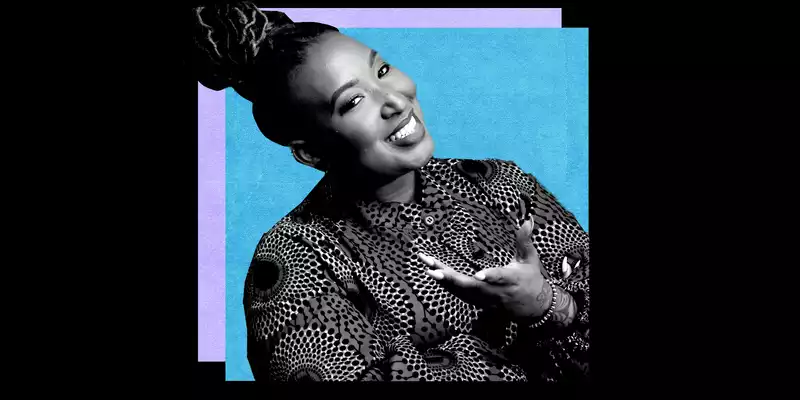
She Pivots with Omi Bell: On Being the Best Destroyer
In partnership with Marie Claire, 'She Pivots' challenges the typical definition of success and explores the role our personal stories play in our professional journey.
Omi Bell wants to talk about disruption. Specifically, about how disruption is not a negative thing, but an opportunity for change - a way to shake up the norms we have become accustomed to and rethink the systems we take for granted. As founder and CEO of Black Girl Ventures, Bell knows about the power of disruption. The venture capital group has funded more than 450 women of color, whose pitches have collectively generated more than $10 million in revenue and supported 3,000 jobs.
For Bell, doing things differently did not begin with Black Girl Ventures; at age 17, she was pregnant with her first child. Raised in a conservative, religious household, Bell's pregnancy caused tension within the family. Despite becoming a parent at a young age, Bell continued her education and studied computer science at North Carolina A&T University. Earning a degree while raising a child was challenging, and Bell began to understand the power of community and the need for help.
"You grow up feeling like you have to stop asking for help," Bell told me on She Pivots this week. 'And when you do ask for help, you are shamed. You don't want anyone to know that you are on public assistance. I got food stamps, child care vouchers, and anything else I could do to sustain myself."
[8 [Meanwhile, Bell worked as a teacher and held down a second job. "America is not set up to be one person with children ...... I realized that I couldn't just be a teacher, even though, at least orally, I had one of the most highly regarded jobs in the country. [In fact, "I think it's the most underrated job in terms of the work you do for American children and the pay you get," Bell says.A silver lining came when Bell became engaged and began making plans for marriage. However, when the engagement was called off and she was laid off from her job, she hit the "lock button." At this point, I feel like I don't have a plan for my life. I know. I'm still in the government system. If I don't do something, nothing will happen."
To survive and provide for her family, Bell got creative. At one point, she pitched a tent in her living room and rented it out on Airbnb. She then launched a T-shirt line called Made by Black Women, which quickly took off. Suddenly, she was earning six figures.
Then Bell had another idea. She knew the challenges black women face in obtaining start-up capital and was inspired by the history of the black community in the United States. Bell explains: "During the Great Migration, when blacks migrated from the South ...... As white landlords raised rents: ...... Blacks threw parties in their own homes. That's how the community-centered crowdfunding mechanism was born. [Initially, Bell's crowdfunding idea was a small one: 30 women would gather in a room and vote on their favorite ideas. But it quickly caught on and became a source of funding for Bell's own startup, Black Girl Ventures. Despite an entrepreneurial rate six times the national average, Black women account for only 0.003% of venture capital funding. Now Bell is working with companies like Nike to change this.
To hear more of Bell's story, including how she has leveraged capital to grow her community, listen to.

Comments